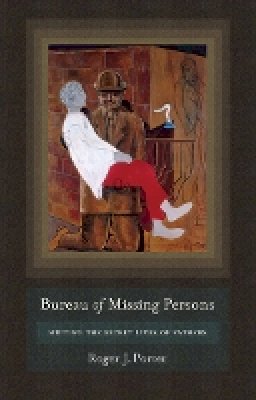
Bureau of Missing Persons: Writing the Secret Lives of Fathers
Roger J. Porter
A devoted reader of autobiographies and memoirs, Roger J. Porter has observed in recent years a surprising number of memoirs by adult children whose fathers have led secret lives. Some of the fathers had second families; some had secret religious lives; others have been criminals, liars, or con men. Struck by the intensely human drama of secrecy and deception played out for all to see, Porter explores the phenomenon in great depth. In Bureau of Missing Persons he examines a large number of these works—eighteen in all—placing them in a wide literary and cultural context and considering the ethical quandaries writers face when they reveal secrets so long and closely held.
Among the books Porter treats are Paul Auster's The Invention of Solitude, Alison Bechdel's graphic memoir Fun Home, Essie Mae Washington-Williams's Dear Senator (on her father, Strom Thurmond), Bliss Broyard's One Drop, Mary Gordon's The Shadow Man, and Geoffrey Wolff’s The Duke of Deception. He also discusses Nathaniel Kahn’s documentary film, My Architect. These narratives inevitably look inward to the writer as well as outward to the parent. The autobiographical children are compelled, if not consumed, by a desire to know. They become detectives, piecing together clues to fill memory voids, assembling material and archival evidence, public and private documents, letters, photographs, and iconic physical objects to track down the parent.
Product Details
About Roger J. Porter
Reviews for Bureau of Missing Persons: Writing the Secret Lives of Fathers
Teresa Coronado
Rocky Mountain Review
Detective stories are everywhere: as many critics have claimed, most novels, at least since Bleak House, bear traces of detective fiction. If this is true of novels, Porter's fascinating book argues that it is also the case for literary memoirs—where the mysteries and people investigated are particularly close to home.
Jonathan Taylor
Times Literary Supplement
